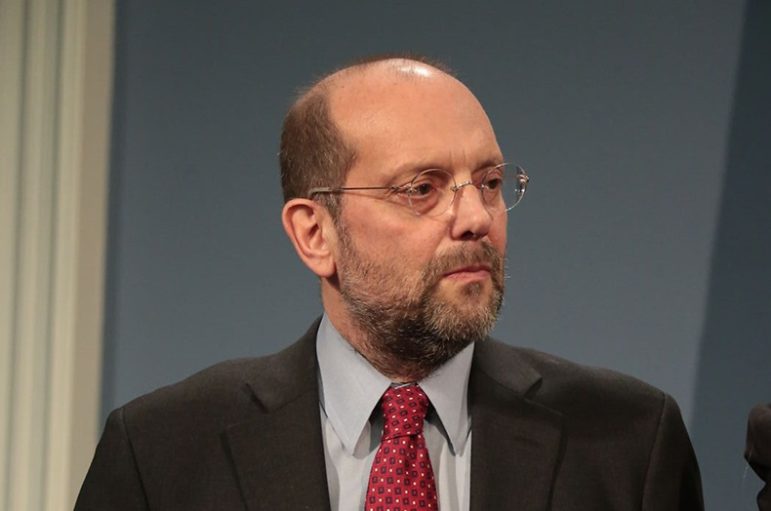
d Reed for the Office of Mayor Bill de Blasio
Social Services Commissioner Steve Banks was the target of recent protests by Queens residents who want the citywide homeless crisis dealt with somewhere other than their backyard.
Every New Yorker is aware of how the city’s homeless crisis has worsened in the last decade. We all see it, and everyone wants the problem solved – no one more so than homeless people themselves. This is a city-wide problem that derives from the severe lack of affordable housing in every borough, and is not confined to particular neighborhoods. Roughly 60,000 people – the vast majority families – sleep in homeless shelters each night, thousands sleep rough on the street, and tens of thousands more live on the brink of homelessness. City data indicate that families from nearly every community in New York experience homelessness. Last year, more than 109,000 people slept in the municipal shelter system, including over 42,000 children.
In one critical way, we are better off than many other cities. New York is legally obligated to provide shelter to all homeless men, women and families in need. That is why we simply don’t see the massive tent cities that have sprung up in so many other places around the country. We have a better way of doing things, a way that better ensures the dignity and safety of those who have lost their homes, while helping them make their way back to the stability that comes with a permanent home.
The legal right to shelter protects every New Yorker – every one of us – from being relegated to the streets when things go wrong. Because the city’s housing affordability crisis is so severe, affecting so many of our neighbors, a great number of shelters are needed. Today there are roughly 600 homeless shelters located throughout the city, including the approximately 300 “cluster sites” that shelter families in privately-owned apartments rented by the city.
While the scale of need is indisputable, many communities throughout the city oppose the opening of shelters in their neighborhoods – even in areas that currently have none. Recently, some Queens residents, upset over plans to convert a local Holiday Inn into a shelter for adult families, sent buses of protesters to angrily demonstrate outside the private home of the city’s social services commissioner in Windsor Terrace, Brooklyn. In contrast, the Kensington/Windsor Terrace community (where I also live) reacted to the city’s plan to open a new shelter last December by collecting “welcome packages” of clothing, diapers and toys for the homeless families moving in.
The anger of those who fight to keep shelters out of their communities, while perhaps predictable, is misplaced. Poor New Yorkers, including the 23,000 children sleeping in shelters tonight, need and deserve a safe place to stay when they lose their homes. Rather than demanding that the city site shelters anywhere but in their backyards, protesters should direct their passion toward urging our elected leaders to provide the only proven solution to homelessness: decent, affordable housing.
The city and state must increase the number of public housing units and Section 8 rental subsidies set aside for families in the shelter system, and prioritize homeless families for subsidized units created and preserved under the larger city and state affordable housing plans. The governor and legislative leaders must immediately sign the memorandum of understanding required to release the $2 billion in State funds recently committed for supportive and affordable housing. Private landlords must stop refusing to rent apartments to those holding rental assistance vouchers from the city.
Until permanent housing for our homeless neighbors is a top priority for our elected leaders and our communities, the need for new shelters will simply continue.
Giselle Routhier is policy director at the Coalition for the Homeless








One thought on “City Views: Homeless Shelter Opponents Pick the Wrong Target”
I think it is so sad how one of the richest cities is the capital of homelessness I have lived here all my life. I went to work one day and was injured on the job. I now find myself disabled and homeless. I have been to five shelters in three years and still no home. What happened New York NY to the years when we had homes and rights. I feel it’s a violation of people’s human rights not to have a home. They bring all these foreigners and give them NYCHA apartments when people born in NYC have no where to live. Something is wrong America and I hope God will have mercy on NYC. Also DeBlasio is a liar he rode this homelessness to the Mayor’s office but he has yet to help the poor homeless. How do you people sleep at night. May God have mercy.